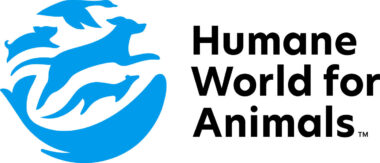Habitat rafts help Australia’s threatened Olive Perchlet return home
With the extinction crisis capturing headlines around the country, innovative habitat rafts – and a First Nations partnership – aims to assist bringing a threatened native fish back from the brink of extinction, and back home.
The Olive Perchlet, also known as Agassiz’s Glassfish, is a native small-bodied fish that was once common throughout the Murray-Darling Basin. Due to a range of issues, including vast habitat loss, the Olive Perchlet is now considered a threatened species in NSW.
OzFish Dubbo team leader Sean Graham said, “The Olive Perchlet, and other small-bodied native fish, once made up the basis for the food chain for the larger fish and birds in the Murray Darling Basin. Without these smaller native fish in our waterways, many other species are at risk, particularly the iconic Murray cod and endangered waterbird species.”
To assist with the protection of the Olive Perchlet, and support other connected species, OzFish partnered with NSW DPIRD Fisheries, Landcare NSW, and a local Indigenous youth program, Boys to the Bush, to revitalize three wetland sites in the Dubbo NSW region, with one site being for the Olive Perchlet reintroduction. These reintroduced populations serve as “insurance” for a doomsday scenario where current wild stocks are lost, and can also help bolster stocks used by NSW DPIRD Fisheries to reinforce wild populations.
Sean Graham said, “Olive Perchlet like to breed in billabongs that have intact waterway vegetation and abundant aquatic plants. The problem is that native vegetation has been removed, and their homes are filled with rubbish and teeming with invasive carp that degrade the water quality and aquatic vegetation.”
OzFish, alongside NSW DPIRD Fisheries, local fishers and Boys to the Bush coordinated four habitat restoration days, with the local community and Landcare members, to create suitable habitat for potential breeding conditions.
Sean Graham said, “The community came together to help the Olive Perchlet, pulling out an enormous eighty kilograms of rubbish from the breeding sites, and 300 carp. Over 90 volunteers put in over 180 volunteer hours to make their local fish habitats healthier.”
Next, the project needed to establish aquatic plants and suitable habitat in refuge ponds. This led to the creation of innovative floating habitat rafts made from hessian, twine, and harvested bamboo, a weed in NSW. The rafts help the Olive Perchlet seek refuge from bigger predators and create habitat suitable for breeding. Refuge populations of the Olive Perchlet were then reintroduced by NSW DPIRD Fisheries into one of the three revitalized wetland sites in the Dubbo NSW region, using brood stock from the DPIRD’s Narrandera Fisheries Centre.
The aim of the project is to have at least five self-sustaining surrogate populations of Olive Perchlet in the Dubbo area, from which annual brood stock can be collected to reestablish and reinforce wild populations.
Landcare NSW Chair Gareth Johnston said, “Landcare NSW is proud to partner with OzFish and NSW DPIRD Fisheries on this important project to restore the Olive Perchlet and other native species in the Dubbo region.”
“We extend a heartfelt thank you to the local communities for their hard work in revitalising the degraded wetlands, removing invasive species, and building the innovative habitat rafts. This project showcases the incredible power of community within conservation, and its vital role in enhancing our environment and biodiversity.”
The project is part of the Driving Fish Habitat Action partnership between OzFish and Landcare NSW, made possible with funding support from NSW DPIRD Fisheries, NSW Recreational Fishing Trusts and BCF Boating Camping and Fishing. Key contributors included the Dubbo Gulf Course, Boys to the Bush Youth Program, West Central Leadership Academy, Skillset Senior College and other valued partners.


Key Facts:
OzFish Unlimited and a local Indigenous youth program, Boys to the Bush, constructed the world's first floating habitat rafts.
- Floating habitat rafts are assisting a threatened native fish species near Dubbo NSW, the Olive Perchlett.
- Local Indigenous youth program, Boys to the Bush, were vital in creating the habitat rafts.
- The Olive Perchlet has suffered huge declines in numbers due to habitat loss.
About us:
About OzFish
OzFish is a not-for-profit member organisation that partners with fishers and the broader community to invest time and money into the protection and restoration of waterways, counteracting decades of degradation with projects in habitat restoration, re-snagging, riverbank planting, clean-ups, fishways, shellfish reefs and educational and community capacity building programs. www.ozfish.org.au, to learn more, or become a member.
Contact details:
Media
To learn more, or arrange an interview email [email protected] or call Ivan Carter on 0422 605 953.




